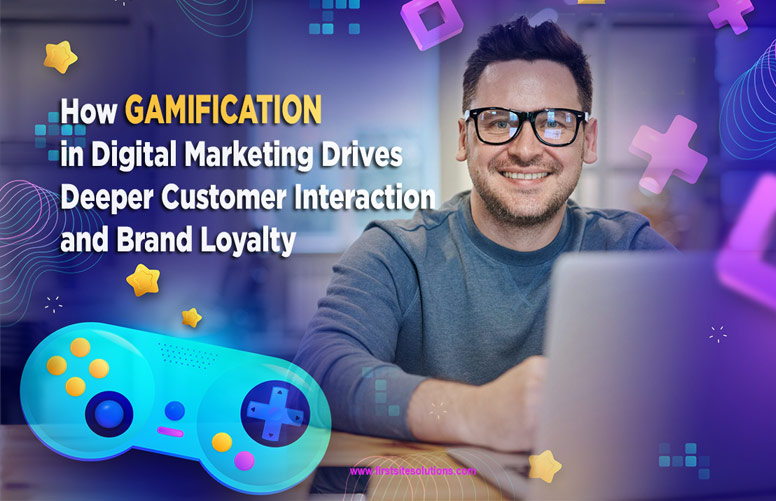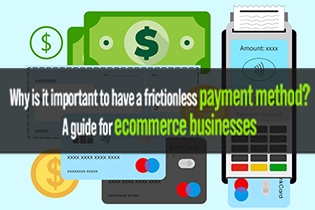
When we talk about gamification in digital marketing, it's more than just a catchphrase. It's a potent tactic for changing how companies communicate with their target audience. Businesses may design compelling digital ads that entice people to return by using game-like aspects. These interactive features, which range from leaderboards to reward points, leverage fundamental elements of human psychology to promote strong brand loyalty and deeper customer connection.
Gamification is becoming an essential tool for creating long-lasting relationships with audiences as more businesses realize its potential. Let's discover how gamification promotes long-term success by grabbing customers' interest and turning them from infrequent visitors into devoted brand champions!
Gamification: More Than Just Fun and Games
The use of game design features in non-gaming contexts, especially in digital marketing, is known as gamification. Making things enjoyable isn't enough; you also need to employ psychological concepts like achievement, competition, and rewards to draw users in and keep them interested.
Users are more inclined to remain involved when they believe they are moving forward, winning prizes, or competing with others. You may already be aware of the success of gamification in mobile apps, as numerous firms have reported higher user engagement and retention rates. Applying these ideas can enable you to create meaningful engagements from seemingly insignificant interactions by creating experiences that connect on a deeper level.

Gamification in digital marketing helps you increase engagement and interaction with your audience
The Role of Gamification in Boosting Customer Interaction
Getting and keeping customers' attention is harder than ever. Gamification provides a remedy to the decreasing average attention span by increasing the incentive and engagement of interactions. Gamification employs aspects such as leaderboards, challenges, and quick rewards to incentivize users to interact with content more frequently. Users are enticed to return again and time again by these competitive and game-like elements.
For example, companies like Nike and Duolingo have employed gamification to encourage consistent user engagement in their services. Encouraging users and giving them a sense of accomplishment guarantees that they stay engaged. Ultimately, it results in increased engagement rates and more solid bonds with the brand.
Build Brand Loyalty Through Gamified Experiences
Long-term company success is based on building brand loyalty, and gamification is essential to doing so. Through the integration of gamified components into consumer interactions, brands may establish an ongoing engagement cycle that cultivates brand loyalty.
To entice customers to return often, gamified loyalty programs such as Starbucks perks provide special perks, badges, and points. These accolades and awards make customers feel appreciated and have a stronger emotional bond with the company. Consumers who participate in these gamified experiences regularly are more likely to form enduring bonds of loyalty.
However, building brand loyalty can be challenging, as it requires choosing the right approach that resonates with your audience. Building brand loyalty involves creating a website with attractive design, user-friendly features, and, most importantly, brand identity. Turning to digital marketing services, such as digitaldot.com, will help you boost engagement, convert leads, and consequently increase your overall traffic and brand recognition.
Create Emotional Connections with Gamification
Emotional ties strongly influence customer loyalty, and gamification in digital marketing is a useful strategy for forging these ties. Brands can arouse happy feelings in consumers by personalizing gamified experiences and letting them track their progress. A user's sense of success and belonging is strengthened when they receive a personalized reward or reach a milestone, for example, and this enhances their bond with the brand.
Additionally, gamified content that evolves based on user behavior makes customers feel understood and valued. This personalized approach enhances the emotional connection and helps boost customer retention by making customers more likely to stick with a brand they feel connected to. By focusing on these emotional aspects, gamification can transform casual users into loyal, long-term advocates.

Social media can play a vital role in your gamification marketing
How Gamification Drives Social Sharing and Community Building
Users are not only more engaged by gamification, but they are also more likely to share their accomplishments, which increases brand awareness. Individuals who finish tasks, get badges, or rank highly on leaderboards are frequently inspired to post about their achievements on social media. Users' sense of community and rivalry is fostered by this social sharing, which increases engagement even further.
Brands that successfully integrate social features into their gamification strategies see a notable increase in their social media engagement rate as users spread the word about their experiences. So, building a community around these shared achievements can create a loyal user base that interacts not only with the brand but also with other like-minded customers. This sense of belonging and shared experience strengthens brand loyalty, making users more invested in the brand and its offerings.
Measure the Success of Gamification in Digital Marketing
Key criteria must be used to gauge gamification's effectiveness and fully comprehend its effects. Monitoring conversion, client retention, and engagement rates can give you important information about how well your gamification efforts are working. For example, users who regularly return to participate with your gamified material are likely to be highly engaged and may even become loyal.
Additionally, A/B testing is essential since it lets you test various game elements. Then, you can adjust them according to how your audience responds best. Sustained progress is the secret to achievement. Thus, by routinely evaluating the impact of gamification in digital marketing, you can make informed decisions that improve user engagement and brand loyalty.

Boost your customers’ experience with gamification strategies
Potential Challenges and Considerations in Implementing Gamification
While gamification offers numerous benefits, it presents challenges that brands must carefully navigate. One common pitfall is overcomplicating the gamified experience, which can overwhelm users and lead to disengagement. Simplicity is key; the game elements should be easy to understand and enjoyable to participate in.
Matching your gamification tactics to your overarching brand objectives is also critical. User confusion and a weakening of brand identity might result from a gamified experience that seems unconnected to your company's message. Making sure the rewards you offer are worthwhile and significant to your target market is another thing to think about since ineffective incentives can be used to discourage behavior.
It's essential to have a clear plan, try out several strategies, and be flexible to avoid these obstacles. With careful application, you may fully realize the benefits of gamification while retaining a close relationship with your audience.
Embrace the Future of Customer Engagement Through Gamification
Gamification in digital marketing is an effective technique for increasing consumer engagement and cultivating brand loyalty. Through the use of game-like experiences, marketers may engage people and foster enduring relationships that encourage repeat business. Gamification has the potential to impact digital marketing in the future as technology advances significantly.








